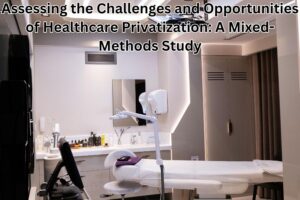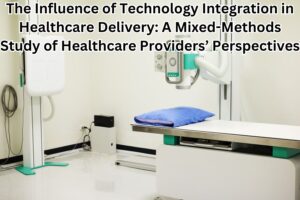Description
Exploring the Relationship Between Healthcare Costs and Patient Outcomes: A Mixed-Methods Study
Abstract
Healthcare costs are elevating beyond inflation, contributing to insurance for providing affordable medical care to maximum population. Although many national governments are translating into superior medical care results, enhanced expenses are superseding policies to maintain esteem population health. This results in obstacles to affording care and drugs even for segments under reasonable insurance coverage. Global nations are grappling to manage disparities in encompassing decent health support to public under coverage. This study involves exploring multi-dimensional associations across healthcare expenses and results.
Different facets of relevance between medical care expenses and health outcomes of individuals are studied in process. Particularly, the process continues to investigate these concepts using a holistic review of prevalent analytical and theoretical data using mixed methods. A literature review is used to obtain theoretical basis regarding healthcare costs and efficiency concepts. Furthermore, the study delves into analyzing relevance across therapeutic care expenses, patient contentment, and survey activities depicting clinical outcomes content. User personal expenses also enhanced overtime to pay beyond provisions for care activities.
Beyond these, the existence of diversified perspectives in this scenario is examined according to costs, accessibility to care plans, and economic segmentation of users. Analyzing such diversified perspectives. The analysis aims to notice possible correlations across disparities in healthcare provisions and areas to improve for maximizing value of services. Many determinants motivate this increase in costs such as advancements in therapy, technical sophistication, and inflation resulting in expansion of insurance claim value. Finally, the research findings contribute to providing an insightful view regarding effective assignment of resources for effective healthcare providers. These factors are studied to elicit reasons for an increase in expenses to provide recommendations for improving medical support while handling monetary hindrances efficiently.
Read more about the topic
The relationship between health care expenditure and health outcomes
View Other Projects on Healthcare
Evaluating the Use of Data Analytics in Healthcare Cost Management: A Mixed-Methods Approach
The Influence of Healthcare Marketing on Consumer Choices: A Mixed-Methods Analysis








Reviews
There are no reviews yet.